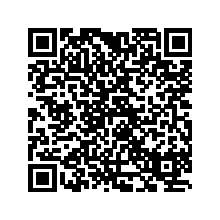Discovery at Carlson·01 In a Pandemic, Professor Parente Goes to Washington
The $2.2 trillion Coronavirus Aid, Relief, and Economic Security Act (CARES Act) is one of the most important pieces of U.S. legislation passed thus far during the COVID-19 pandemic. A Carlson School professor played a major role in determining how to allocate these vital funds to hospitals when the first wave of COVID-19 cases surged across the country.
Stephen T. Parente, the Minnesota Insurance Industry Chair of Health Finance and associate dean of global initiatives, also serves on the White House Council of Economic Advisers (CEA). On the council, Parente and other academic economists advise the President on any and all issues affecting the economic vitality of the United States. A veteran of government service, Parente spoke about the process of distributing the funds and how the pandemic impacted the Carlson Global Institute (CGI).
Q. You were on the Council of Economic Advisers when COVID-19 hit. What was that experience like?
As COVID was unfolding, part of it became a question of not just having a typical report but actually looking at live data tracking metrics. I used a lot of connections that I had, from industry, consulting projects, and alumni to try to get as many live feeds as we could for free to try to understand where COVID was actually going so we could figure out economic activity. We then worked with the Coronavirus Task Force, giving them information and other projections.
Q. How did you come to be involved with distributing the CARES Act funds and how did you go about doing so?
The Department of Health and Human Services approached me and explained that they had just got allocated from Congress $100 billion to basically rescue the hospital industry, and they wanted to hear some of my ideas about how they could distribute that.
Politico stated I was one of the three architects on how we could get that money out. That was not fake news. Our first tranche of money was an overnight direct bank account infusion of $30 billion in early April to over 200,000 hospitals and medical providers in order to keep them operating after all of their normal revenue evaporated in late March from the nationwide shutdown. I felt I had a unique skill set for this process because even though I'm a health economist, I understand by osmosis how banking works, I understand the financial transaction structures, and I understand insurance companies. So, that was a really cool and rewarding rescue mission to the entire health economy to be a part of.
Q. Why is government service important to you? What keeps you coming back?
It’s the people. So many of the folks I work with are dedicated and brilliant. The conversations that I have with people are not very polarized. They are very much focused on problem-solving. Obviously, you’re going to come across some people who may frustrate you, especially when under time pressure to execute a deliverable, but the intense work builds cohesion, and perhaps after a libation or two over months and years of interaction they become akin to an extended family.
Over the years, there are so many things that I’ve thought the government should do. So, being able to bring those ideas to the table, work on them, and then see the impact they have on people’s lives is gratifying.
Q. You had just taken the new role at CGI before the pandemic hit. How did you all navigate our international programs and what’s it looking like now?
Working in Washington, I knew COVID-19 was coming and that we had to prepare. Then, after President Trump gave his speech on March 11, it was obvious that we had to basically airlift our students out very quickly. I think that it was fortunate that I knew a lot of the staff at CGI already. The CGI staff are just tremendous to be able to pull all of that off in such a short amount of time.
Going into the fall semester and with all of our international experiences now done virtually, it’s opened up a lot of options as to where we could take our programs in the future. With our strong partnerships around the world, the possibilities are endless.
疫情期间,帕伦特教授供职华盛顿
2020年11月17日,星期二
价值2.2万亿美元的《新冠病毒救济、援助和经济安全法》(CARES法案)是美国政府在新冠疫情期间通过的最重要的法案之一。第一波新冠疫情席卷美国之时,相关资金被分配至各大医院,而卡尔森学院的一位教授在该项拨款工作起到了重要作用。
Stephen T. Parente是卡尔森管理学院副院长,明尼苏达州保险行业卫生筹资主席,同时在白宫经济顾问委员会(CEA)供职。在该委员会中,帕伦特教授等理论经济学家的职责是,就可能影响美国经济活力的事务向美国总统提出建议。帕伦特教授在政府工作方面富有经验,此次他介绍了拨款流程以及疫情对卡尔森全球研究院(CGI)的影响。
问:新冠疫情爆发时,您是经济顾问委员会的成员。当时的工作是怎样的呢?
新冠疫情发展起来时,我们不仅需要形成常规报告,还需要跟踪实时数据指标。我动用了自己在产业界、咨询项目和校友中的关系网,尽量多地获取免费的即时动态信息,了解新冠疫情的实际发展趋势,以便做出经济活动建议。当时,我们和白宫新冠特别工作组合作,向他们提供信息和其他预测。
问:您是如何参与到CARES法案的拨款工作中的?您又是如何处理这项工作的呢?
卫生与公共服务部找到我,表示他们刚刚从国会获得了1000亿美元的拨款,用于拯救医院行业。他们希望我说说应该怎么分配这笔资金。
政府官员表示,我是负责该项拨款的三名架构师之一。这不是假新闻。我们的第一笔拨款是300亿美元,在四月初直接汇入了20余万家医院和医疗服务提供者的银行账号。由于三月底的全国停工,医院失去了常规收入,这笔拨款让医院能够维持运转。在这项工作中,我认为自己具备特殊的优势,我是个卫生经济学家,同时通过耳濡目染中我了解了银行业的运作方式,我了解金融业务结构,我还了解保险公司。所以,能够参与这一拯救医疗行业的行动真的妙极了。
问:为什么政府服务对您很重要?为什么您会再次参与其中?
是为了人。在我的同事中,许多都是敬业而智慧的人。与他们的对话不会陷入两极分化。他们总能集中关注解决问题。当然,工作中难免遇到让你感觉沮丧的人,尤其是时间紧迫的时候,但是紧张的工作会带来凝聚力。一起合作数月乃至数年后,再加上一起喝过一两杯,他们就成为了你的编外家人。
这些年来,我经常会想政府该做什么事情。所以,我很高兴能把自己的想法提出来、执行起来,并看见它们对人民生活的影响。
问:在新冠疫情爆发时,您刚刚加入了CGI。您如何领导我们的国际项目,现在这个项目发展如何?
得益于政府工作的经历,我知道新冠肺炎疫情来了,我们必须有所准备。特朗普总统在3月11日发表了演讲,此后事态很明朗了,我们必须把学生紧急送出校园。幸运的是,当时我已经认识了CGI的很多工作人员,他们表现十分出色,在很短的时间内完成了所有工作。
在接下来的秋季学期中,国际项目将在网络上进行。这给我们带来了关于项目未来走向的很多选项。通过全球合作伙伴的强力支持,我们拥有无限的可能性。

Stephen T. Parente, Ph.D.
https://carlsonschool.umn.edu/news/pandemic-professor-parente-goes-washington



